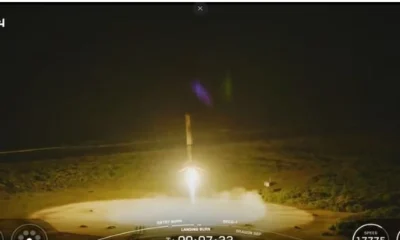Gadgets
Pluto to be a Planet again: NASA Chief says

Gadgets
OnePlus Freedom Sale 2026 brings discounts on 15, 15R, 13, Nord 5 and tablets
OnePlus Freedom Sale 2026 begins Jan 16 with discounts on phones, tablets, and audio products across online and offline stores.
Gadgets
Oppo Reno 15 likely to launch in India soon with upgraded camera and performance features
Oppo is preparing to launch the Reno 15 series in India, focusing on camera improvements, performance stability and a refined design. Here’s what to expect from its pricing and features.
Gadgets
Samsung Galaxy S25 FE India price leak suggests launch similar to S24 FE
Samsung Galaxy S25 FE India price has surfaced online, hinting at a similar launch price as the S24 FE. The phone brings a 6.7-inch AMOLED display, Exynos 2400 chip, triple rear cameras, and a 4,900mAh battery.
-

 Latest world news16 hours ago
Latest world news16 hours agoTrump says tariffs will replace income tax, criticises Supreme Court setback in key address
-

 Latest world news16 hours ago
Latest world news16 hours agoTrump repeats claim of averting India-Pakistan nuclear war during Operation Sindoor
-

 Latest world news15 hours ago
Latest world news15 hours agoPM Modi to begin two-day Israel visit, defence and trade in focus
-

 India News16 hours ago
India News16 hours agoShashi Tharoor questions Centre over Kerala name change to Keralam
-

 India News7 hours ago
India News7 hours agoMK Stalin predicts frequent PM Modi visits to Tamil Nadu before assembly election
-

 Latest world news6 hours ago
Latest world news6 hours agoIndia eyes Rs 8,000 crore mid-air refuelling aircraft deal as PM Modi begins Israel visit
















